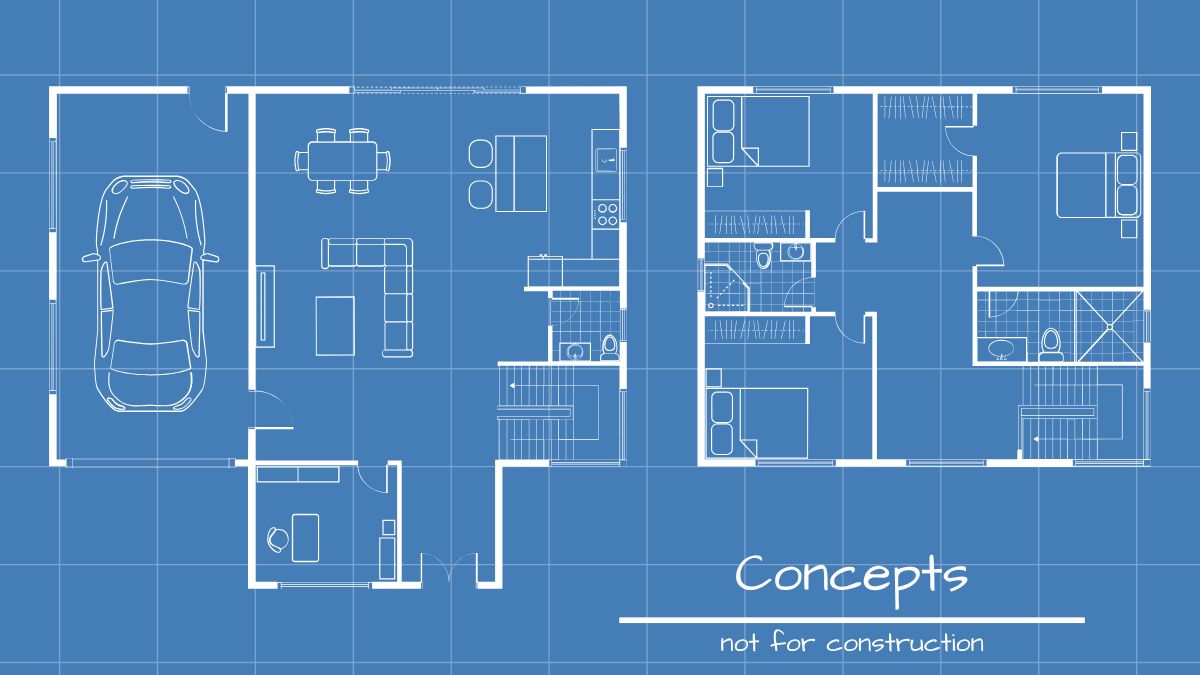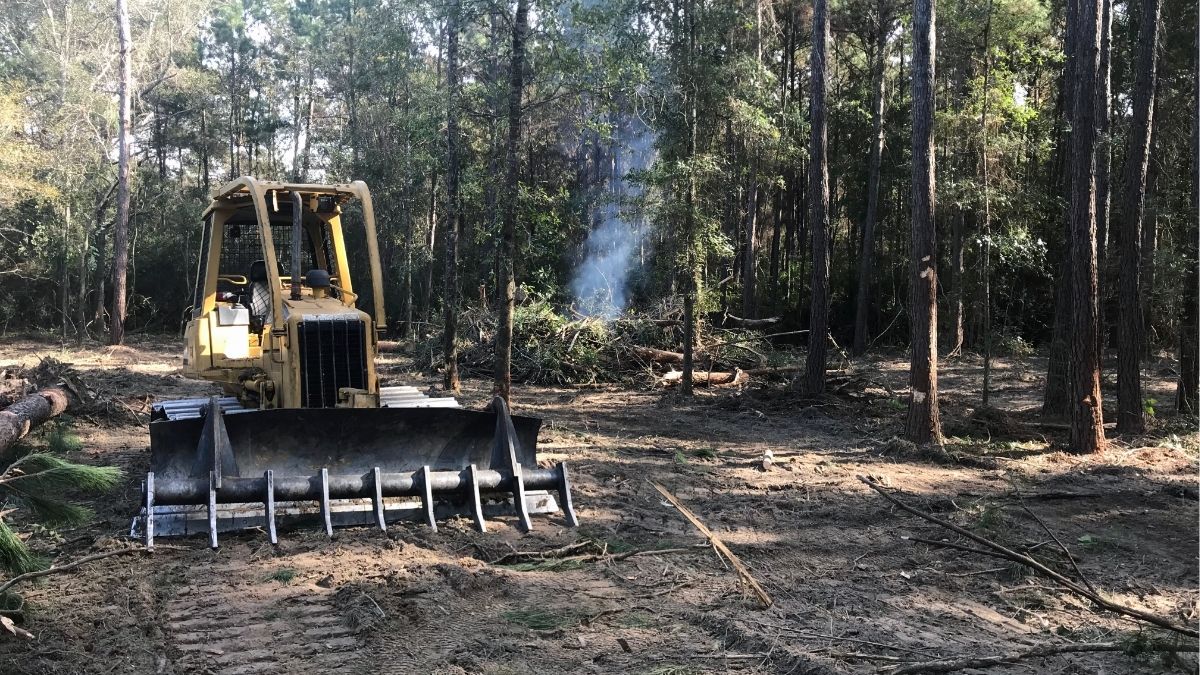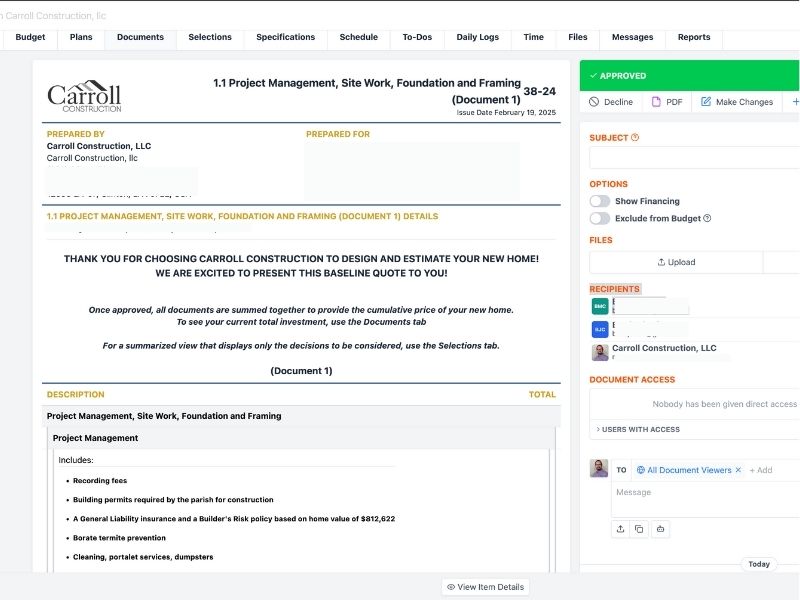How to Obtain an ACCURATE Quote on a Custom Home
- Quick Topics -
Getting an accurate quote for a custom home is more challenging than many expect. Quick ballpark estimates often miss key details, leading to costly surprises down the road. To avoid this, you need a quote that truly reflects your design choices, finish selections, and site-specific work. This guide explains how we achieve that accuracy through five clear steps.
Step 1: Obtain a Conceptual Estimate Before Plans Are Drawn
The first step in obtaining an accurate quote is getting a conceptual estimate early in the process. This preliminary pricing should be based on your project’s scope, design preferences, and a rough idea of materials. Builders who offer design-build services often help you develop a basic floor plan as part of their preconstruction agreement.
Without this early estimate, you risk spending time and money drawing plans that may exceed your budget. This estimate gives you a realistic baseline, allowing you to adjust your design as needed.

Step 2: Establish the Preliminary Cost Estimate
Once the concept is clear, the next step is establishing a preliminary cost estimate. This estimate includes refined pricing for things like materials, labor, and site work. You’ll have an opportunity to make selections—like cabinetry, flooring, and fixtures—and see how they fit within your budget.
For homeowners who work with a builder with in-house design services, this stage is much easier. You can see actual costs for various selections and receive guidance on making choices that align with your budget.
Step 3: Refine the Price with Your Selections
After the preliminary estimate, it's time to refine the quote with your actual selections. This includes:
Cabinets
Flooring
Appliances
Plumbing and lighting fixtures
Colors, tones, and textures
If your builder offers in-house design services, they can walk you through these decisions, showing how each choice impacts your budget. Selections are matched with real costs and vendor quotes, ensuring you know exactly how your choices align with the preliminary budget estimate.
If you opt for upgrades or changes, your budget can be revised accordingly.

Step 4: Price the Site Work For Undeveloped Land
For those building on undeveloped land, site work pricing is a critical next step. This covers everything from grading and excavation to utility connections (water, sewer, gas lines, etc.).
Often, site work pricing isn’t fully refined until later in the process, but it’s essential for keeping your budget on track. This step ensures that the cost of preparing the land for construction is fully accounted for.
Step 5: Finalize the Fixed Price with Accurate Bids
Finally, your builder will secure fixed-price bids from vendors and contractors, locking in pricing for all selections and site work. These quotes should come from pre-qualified vendors with proven experience and reliability.
At this stage, you’ll receive a complete, final quote that includes:
All selections
Site work costs
Labor
Materials
Once these bids are in place, you have a fixed-price agreement, giving you peace of mind that your budget won’t change unexpectedly.

Prepare for Financing and Appraisal
To secure a construction loan, your lender will require a set of plans—and ideally, written specifications as well.
In the Baton Rouge market, it's common for banks to treat the plans as the specs, but this isn’t best practice. Submitting a home for appraisal without written specifications forces the appraiser to make assumptions about materials, finishes, and quality—and that can skew the final value of your home.
Specifications ensure that the appraiser, lender, and builder are all working from the same expectations. They can be prepared by either:
An architect, though this often comes at a premium
Or a well-organized builder who includes specifications as part of a structured design-build process
If you're not in a position to hire a full-service architect, a builder who captures detailed specs during preconstruction can provide the accuracy your lender and appraiser need—while keeping your project on budget.

Key Takeaways
An accurate quote includes detailed specifications that outline materials and quantities.
Your quote should be supported by fixed-price bids from qualified vendors.
Site work pricing is necessary for undeveloped land, so don't overlook it.
The process of obtaining an accurate quote includes two stages: first, a conceptual estimate, then a final fixed price.
"A true design-build contractor will spend significant time measuring, organizing, and documenting every detail of the project. This ensures an accurate quote that reflects every part of the home, from foundation to finishes."
In Summary
To avoid costly surprises, it’s important to start by obtaining a conceptual estimate. Then, refine that estimate into a preliminary cost estimate, and add site work pricing. Finally, solidify the final fixed price once all selections and bids are in. Working with a qualified builder who follows this process ensures you get an accurate quote that fully covers all aspects of your custom home.
Ready to find out more?
Drop us a line today to set up a free consultaion!





